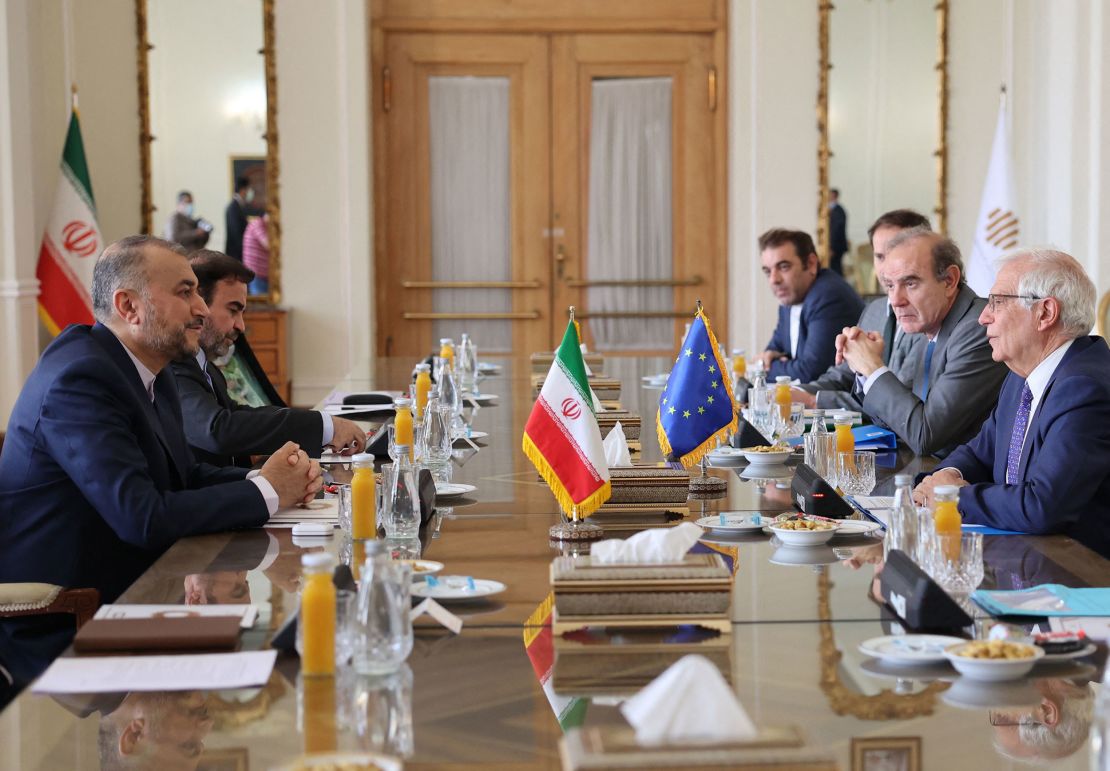An effort to save the Iran nuclear deal appeared to hang in the balance on Thursday after Washington said Tehran’s latest reply to the European Union proposal was “not constructive.”
A US State Department spokesperson said the United States had received Iran’s response to the EU bid to revive the 2015 deal and would formulate its own response.
“We are studying it and will respond through the EU, but unfortunately it is not constructive,” the State Department spokesperson said.
Iran sent its reply to the EU on Thursday after careful examination, Iranian Foreign Ministry spokesperson Nasser Kanaani said in a statement on Telegram.
“The sent text has a constructive approach with the aim of finalizing the negotiations,” the statement said.
CNN has reached out to the EU for comment.
Early in August, EU officials sent the US and Iran what it called the “final text” of a revived deal to limit Tehran’s nuclear program in exchange for sanctions relief.
Iran and the US have since exchanged responses on sticking points to fully implement the nuclear pact, also known as the Joint Comprehensive Plan of Action (JCPOA).

Iran’s President Ebrahim Raisi and Foreign Minister Hossein Amir-Abdollahian both reiterated this week that a probe by the United Nations nuclear watchdog into uranium traces previously found at undeclared research sites in Iran would need to be closed before Tehran agreed to return to the deal.
International Atomic Energy Agency (IAEA) Director General Rafael Grossi told CNN last week that his organization will not close the investigation unless it receives answers from Iran.
Amir-Abdollahian said during a press conference with Russian Foreign Minister Sergey Lavrov on Wednesday that Iran is also seeking “stronger text on guarantees,” without specifically naming the assurances sought by Tehran.
US officials had previously voiced some optimism around the latest efforts to revive the nuclear deal, which the US left in 2018 during the Trump administration and which Tehran has increasingly violated since then. However, they also stressed that gaps remain between the two sides.
It is also expected to face significant domestic opposition from US congressional lawmakers, and has been denounced by Israel, whose prime minister said “will act to prevent Iran from becoming a nuclear state.” The negotiations over the nuclear deal are also set against a backdrop of continued concerns about threats from Iranian and Iranian-backed military groups.
Biden administration officials have previously claimed that Tehran dropped a number of demands that were in earlier drafts of the text meant to restore the 2015 agreement, including the condition that the Islamic Revolutionary Guard Corps (IRGC) be de-listed as a foreign terrorist organization.




